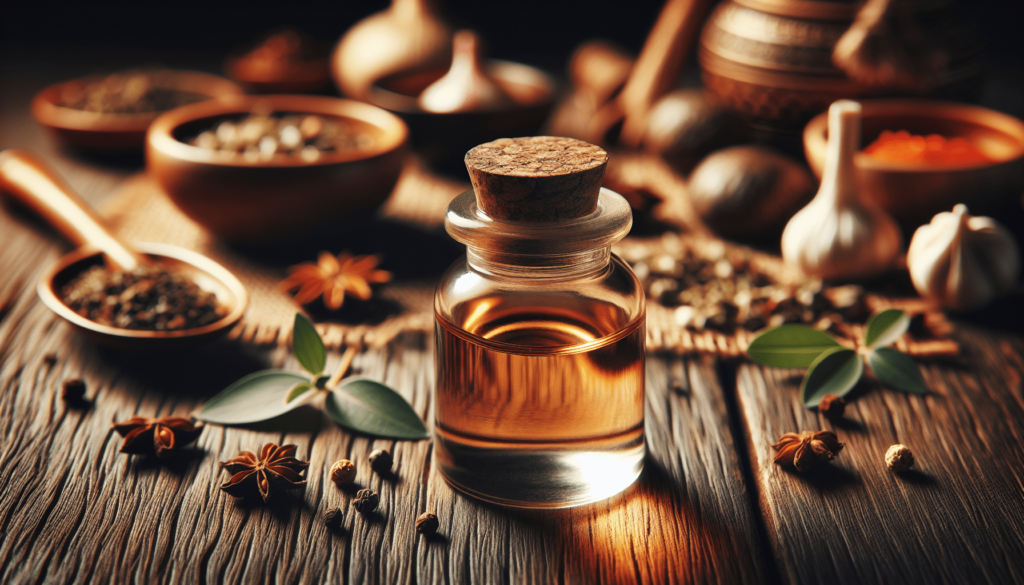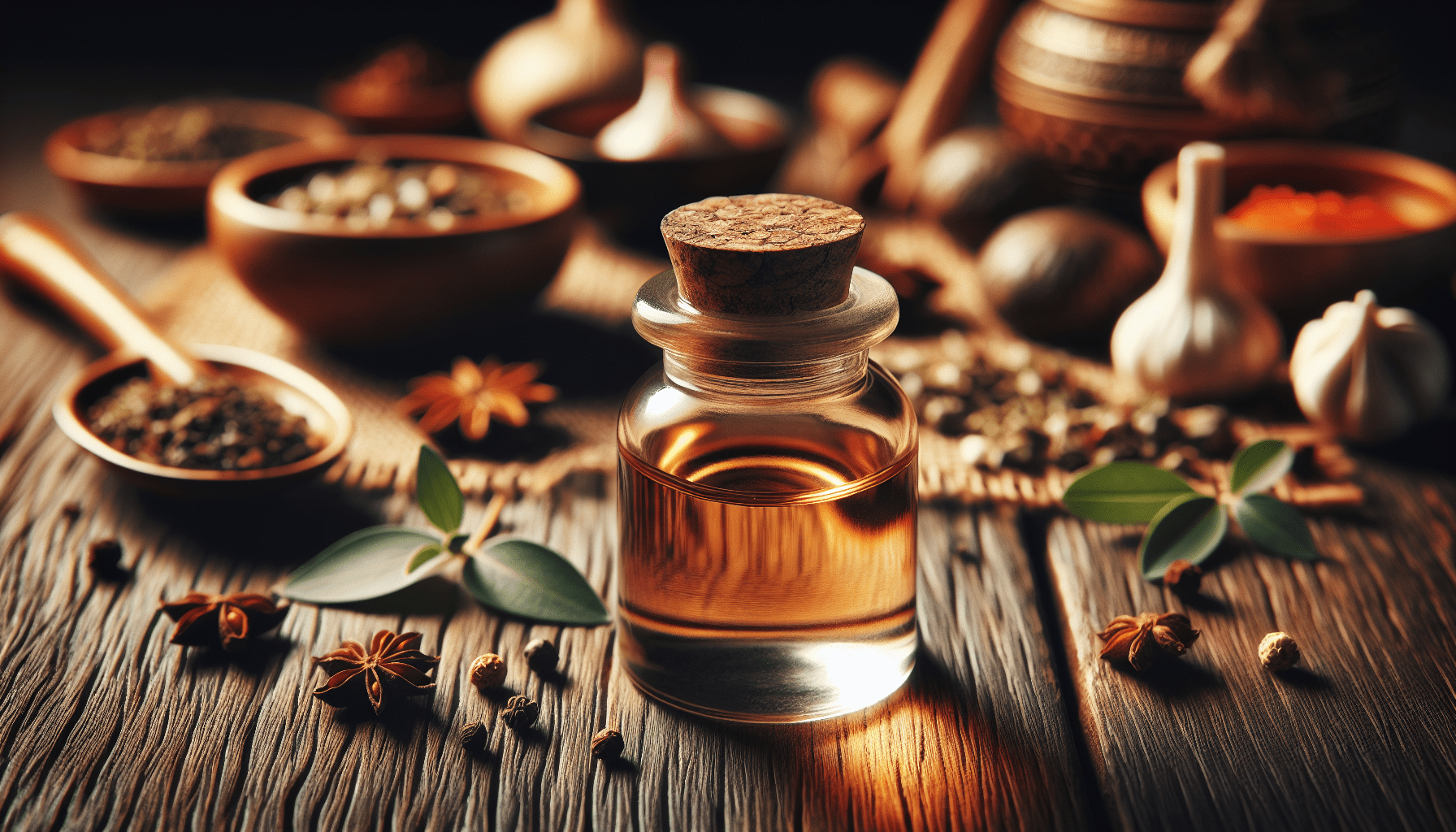The Power of Healing with Ayurvedic Oils
Have you ever wondered about the holistic healing properties of Ayurvedic oils? These ancient oils have been used for centuries in traditional Ayurvedic medicine to promote physical, mental, and emotional well-being. Let’s explore the transformative power of these natural oils and how they can benefit you in your everyday life.
What is Ayurvedic Medicine?
Ayurvedic medicine is a traditional Indian healing system that dates back over 5,000 years. The word “Ayurveda” comes from the Sanskrit words “ayur,” which means life, and “veda,” which means knowledge. This ancient practice focuses on bringing the body, mind, and spirit into balance to promote overall health and wellness.
Ayurvedic Principles
In Ayurvedic medicine, it is believed that each individual is made up of a unique combination of the three doshas: Vata, Pitta, and Kapha. These doshas govern various bodily functions and when they are in balance, a person experiences good health. When the doshas are imbalanced, illness can occur.
Ayurvedic treatments aim to restore balance to the doshas through diet, lifestyle changes, herbal remedies, and therapies such as oil massage. Ayurvedic oils play a key role in this healing process as they are believed to have potent healing properties that can help bring the body back into balance.
The Healing Power of Ayurvedic Oils
Ayurvedic oils are derived from a variety of plant sources such as herbs, flowers, roots, and seeds. These oils are infused with various medicinal properties and are used both internally and externally to promote health and well-being. Let’s take a closer look at some of the most common Ayurvedic oils and their healing properties.
Coconut Oil
Coconut oil is one of the most widely used Ayurvedic oils due to its versatility and numerous health benefits. This oil is rich in lauric acid, which has anti-inflammatory and antimicrobial properties. Coconut oil is commonly used in Ayurvedic cooking and is also used topically for skin and hair care.
Sesame Oil
Sesame oil is another popular Ayurvedic oil known for its warming properties. This oil is often used in massage therapy to soothe sore muscles and promote relaxation. Sesame oil is also used in traditional Ayurvedic oil pulling, a practice that involves swishing oil in the mouth to improve oral health.
Neem Oil
Neem oil is a powerful Ayurvedic oil that is derived from the neem tree. This oil is known for its antibacterial, antifungal, and antiviral properties, making it an effective treatment for various skin conditions such as acne, eczema, and psoriasis. Neem oil is also used to promote hair growth and improve scalp health.
Brahmi Oil
Brahmi oil is derived from the Brahmi plant, also known as Bacopa monnieri. This oil is highly prized in Ayurveda for its ability to promote mental clarity, focus, and memory. Brahmi oil is often used in scalp massages to nourish the hair follicles and promote healthy hair growth.
Amla Oil
Amla oil is derived from the Indian gooseberry fruit and is rich in antioxidants and vitamin C. This oil is used in Ayurveda to promote hair growth, prevent premature graying, and nourish the scalp. Amla oil is also used to strengthen the immune system and improve digestion.

How to Use Ayurvedic Oils
There are several ways to incorporate Ayurvedic oils into your daily routine to promote health and well-being. Let’s explore some common Ayurvedic practices that involve the use of oils.
Abhyanga
Abhyanga is a traditional Ayurvedic self-massage technique that involves using warm oil to nourish the skin and promote relaxation. This practice helps to improve circulation, detoxify the body, and balance the doshas. To perform Abhyanga, warm up your chosen Ayurvedic oil and massage it into your skin in gentle, circular motions before bathing.
Shirodhara
Shirodhara is a therapeutic Ayurvedic treatment that involves pouring a continuous stream of warm oil onto the forehead. This practice helps to calm the mind, relieve stress, and promote mental clarity. Shirodhara is often used to treat anxiety, insomnia, and headaches.
Nasya
Nasya is an Ayurvedic practice that involves applying oil to the nasal passages to promote respiratory health and relieve congestion. This practice is believed to clear the sinuses, improve breathing, and prevent respiratory infections. Nasya is often used in conjunction with other Ayurvedic treatments to support overall wellness.
Gandusha
Gandusha is an Ayurvedic practice that involves swishing oil in the mouth to improve oral health and promote detoxification. This practice helps to remove toxins from the mouth and throat, strengthen the teeth and gums, and freshen the breath. Gandusha is often performed using sesame oil or coconut oil.
Choosing the Right Ayurvedic Oil for You
With so many Ayurvedic oils to choose from, it can be overwhelming to decide which oil is right for you. Here are some tips to help you select the best Ayurvedic oil based on your dosha and health needs.
Vata Dosha
If you have a Vata dosha imbalance, you may benefit from warming oils such as sesame oil, almond oil, or mustard oil. These oils can help to calm the nervous system, reduce anxiety, and improve circulation. Avoid using cooling oils such as coconut oil or sunflower oil, as they can exacerbate Vata imbalances.
Pitta Dosha
If you have a Pitta dosha imbalance, you may benefit from cooling oils such as coconut oil, sunflower oil, or neem oil. These oils can help to soothe inflammation, reduce heat, and balance the digestive system. Avoid using warming oils such as sesame oil or mustard oil, as they can worsen Pitta imbalances.
Kapha Dosha
If you have a Kapha dosha imbalance, you may benefit from stimulating oils such as mustard oil, eucalyptus oil, or cinnamon oil. These oils can help to invigorate the body, improve circulation, and reduce congestion. Avoid using heavy oils such as sesame oil or almond oil, as they can exacerbate Kapha imbalances.

The Benefits of Using Ayurvedic Oils
Incorporating Ayurvedic oils into your daily routine can have a wide range of benefits for your physical, mental, and emotional well-being. Let’s explore some of the key benefits of using Ayurvedic oils.
Promotes Relaxation
Ayurvedic oils are known for their calming and grounding properties, making them a great tool for reducing stress and promoting relaxation. Whether you use Ayurvedic oils for massage, aromatherapy, or meditation, you can experience a sense of peace and tranquility that helps you unwind after a long day.
Nourishes the Skin
Ayurvedic oils are rich in vitamins, minerals, and antioxidants that nourish and hydrate the skin. Regular use of Ayurvedic oils can help to improve skin texture, reduce signs of aging, and promote a healthy glow. Whether you have dry, oily, or sensitive skin, there is an Ayurvedic oil that can benefit your skin type.
Supports Digestion
Certain Ayurvedic oils such as ginger oil, cumin oil, and fennel oil can help to stimulate digestion, improve nutrient absorption, and reduce bloating and gas. These oils can be ingested orally or used topically to support gastrointestinal health and promote overall wellness. Incorporating Ayurvedic oils into your diet can help to optimize digestion and prevent digestive issues.
Boosts Immunity
Ayurvedic oils such as eucalyptus oil, tea tree oil, and oregano oil have antimicrobial and antiviral properties that can help to boost the immune system and prevent illness. These oils can be diffused in the air, applied topically, or ingested orally to support immune function and protect against pathogens. Adding Ayurvedic oils to your wellness routine can help to strengthen your immune system and keep you healthy year-round.
Conclusion
Ayurvedic oils have been used for millennia to promote health and well-being in the body, mind, and spirit. Whether you are looking to reduce stress, improve skin health, support digestion, or enhance immunity, there is an Ayurvedic oil that can benefit you. By incorporating Ayurvedic oils into your daily routine through practices such as Abhyanga, Shirodhara, and Nasya, you can experience the transformative power of these ancient healing oils in your everyday life. Embrace the wisdom of Ayurvedic medicine and discover the healing potential of Ayurvedic oils for yourself.

